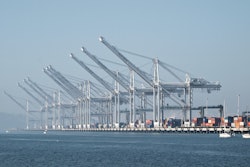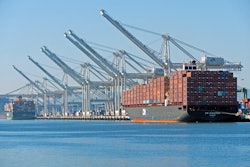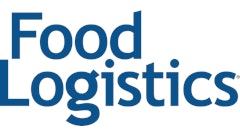Agricultural exports are facing delays at the Port of Oakland as terminals struggle to provide longshoremen with documentation verifying refrigerated containers containing farm products have not previously transited Vietnam and are safe to handle.
The issue stems from incidents this spring when reefer containers that had been serviced in Vietnam exploded, killing two workers in Vietnam and one in Brazil. Earlier this month, members of the International Longshore and Warehouse Union in Oakland and Seattle refused to handle reefer containers because of safety concerns.
West Coast employers thought they had resolved the union's concerns over the safety of reefer containers when the coast arbitrator who handles contract disputes established a protocol on Nov. 9 for providing documentation to longshoremen so they could isolate reefer containers that had experienced maintenance work in Vietnam.
Exporters at the weekend complained to port, shipping and marine terminal executives in Oakland that longshoremen were still "working deliberately" at some terminals, which is a code name for working at a very slow pace.
The slowdowns come at a critical moment in the agricultural export cycle, said Richard Coyle, president of Devine Intermodal. "Ag shipments this year are coming through the port almost two months late because of the super mild summer," he said. Shipments that ordinarily spike in September are just now flooding Oakland, which is a major export port.
The Agriculture Transportation Coalition, a Washington-based organization representing agricultural shippers across the nation, has been deluged with complaints from its members and has contacted maritime industry executives.
The Pacific Maritime Association, which represents employers in administering the waterfront contract, said the situation in Oakland the past two weeks was indeed trying, but Jim McKenna, president, said conditions were starting to improve at the weekend.
The problems are greatest at those terminals that have multiple ocean carrier clients, or at terminals where carriers that operate in vessel-sharing arrangements call. When the containers of more than one carrier are handled at a facility, it is difficult for the terminal operator to gather all of the documentation required under the arbitrator's ruling, McKenna said.



















